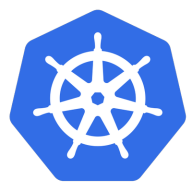

Kubernetes and Komodor operate in the realm of container management and troubleshooting. Komodor seems to hold an advantage due to its strong troubleshooting capabilities, despite Kubernetes being more cost-effective.
Features: Kubernetes offers scalability, flexibility, and a strong community support system. It excels in managing complex containerized applications, providing robust orchestration. Komodor, on the other hand, shines with its real-time monitoring, root cause analysis, and the ability to swiftly identify and resolve issues.
Room for Improvement: Kubernetes could improve in deployment simplicity, personalized support, and maintenance requirements. It involves a steep learning curve that requires skilled personnel. Komodor might enhance its pricing model, broaden feature scope beyond troubleshooting, and expand integration capabilities with other platforms or services.
Ease of Deployment and Customer Service: Kubernetes demands advanced expertise for deployment and maintenance and often involves resource-intensive management. Community-driven support is vast but lacks personalized assistance. Komodor simplifies deployment with a user-friendly setup and offers responsive customer service, facilitating faster resolution times and making it more user-friendly for streamlined operations.
Pricing and ROI: Kubernetes benefits from being open-source, leading to lower direct costs but may incur hidden expenses related to support. Komodor carries additional costs for its tools yet provides significant ROI by reducing downtime and simplifying troubleshooting tasks. This efficiency and time-saving lead to greater ROI, making Komodor a worthwhile investment for managing Kubernetes environments effectively.


Komodor is the missing piece in your DevOps toolchain - offering one unified platform from which you can gain a deep understanding of all of your system events and changes. We integrate with all of your tools, monitor changes and alerts and organize information on a clear digestible dashboard and provide you with the right context at the right time.
Kubernetes (K8s) is an open-source system for automating deployment, scaling, and management of containerized applications.
It groups containers that make up an application into logical units for easy management and discovery. Kubernetes builds upon 15 years of experience of running production workloads at Google, combined with best-of-breed ideas and practices from the community.
We monitor all Container Management reviews to prevent fraudulent reviews and keep review quality high. We do not post reviews by company employees or direct competitors. We validate each review for authenticity via cross-reference with LinkedIn, and personal follow-up with the reviewer when necessary.